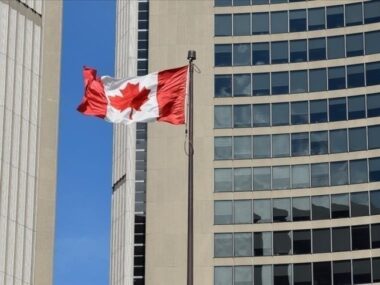Investors are alarmed by recent indications of economic weakening in China as well as poor UK and eurozone data.
Fears over the global economy’s health have grown as a result of disappointing data from China, the eurozone, and the United Kingdom.
Following further indications of weakness in China that led to fear that its post-lockdown recovery was losing speed, share prices slumped in Asia and the pound sank to a 12-week low versus the US dollar.
Meanwhile, there were indications that both the UK and the 20-country eurozone’s service sector activity is weakening as a result of the gradual increase in interest rates.
The announcement that service sector activity in the second-largest economy in the world fell to its lowest level in eight months in August sent markets into a tailspin, prompting speculation that Beijing may need to boost up support for weak levels of demand.
After the ailing real estate developer Country Garden avoided bankruptcy, stock prices rose across the globe on Monday.
The announcement of China’s services purchase managers’ index (PMI) caused stock markets to falter, and even the news that Country Garden had made interest payments on two US dollar bonds failed to cheer up investors due to worries that the stimuli so far offered were too narrow in scope.
The government announced measures to make it simpler to purchase the high number of unsold properties in major Chinese cities over the weekend and put pressure on lenders to lower lending rates. The decrease in the Caixin PMI, however, overshadowed the improvement in the real estate sector.
The snapshot decreased from 54.1 in July to 51.6 in August, falling short of the 53.6 analysts polled by Reuters had projected and just rising above the 50 threshold that distinguishes a thriving economy from one that is declining.
“Services had been a brighter spot in the economy,” said Susannah Streeter, head of money and markets at Hargreaves Lansdown, “with hopes that consumers would continue to spend on trips out and education. But demand is turning more sluggish, and any stimulus efforts to spur spending are not hitting the mark.”The numbers have overshadowed the satisfaction that the financially troubled Country Garden has been able to make crucial interest payments on its debt, easing for the time being worries about banking sector contagion. China seems to be moving forward yet backward at the same time, as optimism one day gives way to pessimism the next.
British and eurozone service sector PMIs both fell below the 50 mark.
The final Eurozone PMIs published today were lowered downward from the already low levels recorded in the flash measure two weeks ago, according to Capital Economics’ Europe economist Adrian Prettejohn. When compared to July, the services business activity PMI fell, and even though the manufacturing output PMI slightly increased, it nevertheless remained in contractionary zone. In the second half of the year, a recession is still something we predict.











